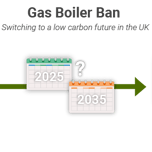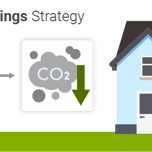Answer these simple questions and we will find you the BEST prices
Which type of solar quotes do you need?
It only takes 30 seconds
100% free with no obligation

Get up to 3 quotes by filling in only 1 quick form

Slash your energy bills by installing an energy efficient boiler

We’ve helped over 500,000 homeowners reduce their carbon footprint
- GreenMatch
- Boilers
- gas
- Alternative to Gas Boiler
Gas Boiler Alternatives: What to Consider?

Gas boilers have been the norm for domestic heating in the UK, but as pressure grows to reduce our carbon emissions, they may no longer be the standard. In fact, the International Energy Agency (IEA) stated that no new fossil fuel boilers should be sold from 2025 if the world is to achieve net-zero emissions by the middle of this century.
Luckily, there are many environmentally friendly and low-carbon heating solutions that are gas free that you can choose from. In this article, we’ll cover the gas boiler alternatives currently in use and also some that you can look forward to in the future.
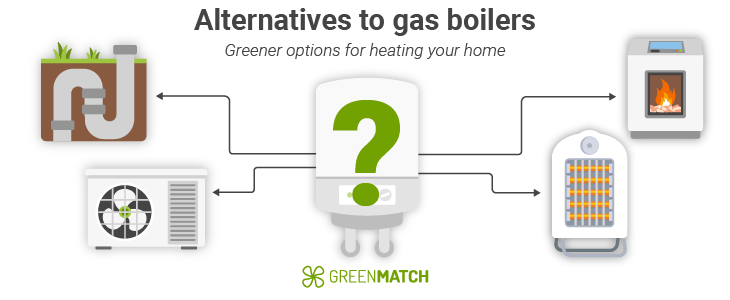
Why Consider an Alternative to a Gas Boiler
The October 2022 energy price cap increase means the average household will pay £3,549 on annual energy bills. This is triple the amount paid last year. And its projected that electricity and gas prices will continue to increase in 2023.
This comes during a time when the UK is already facing high inflation, cost of living crisis and energy crisis instigated by the economy recovering from COVID-19 lockdown and less imported gas from Russia.
As a result, many homeowners have found renewable energy— through solar panels & heat pumps— to be the solution to becoming energy self-sufficient and independent of the gas and electricity grid.
More than 80% of UK homes have gas boilers, but the UK Government’s target to reach net zero emissions by 2050 has necessitated the introduction of initiatives aimed at reducing fossil fuel emissions across various sectors, including the home heating sector.
This could mean a lot of changes for new and existing homes with gas boilers. For instance, the UK government has announced the phasing out of domestic gas boilers in new homes. The UK’s gas boiler ban, scheduled to start as early as 2025, is a major step towards meeting the 2050 net-zero carbon emissions target and one that’s likely to be accelerated with the announcement of the new target for the UK to only produce clean electricity by 2035.
The first phase of the gas boiler ban is for new build properties. There are currently no plans to replace boilers using gas in older homes, however, the installation of new gas boilers will be banned from 2035. So, if you’ve recently purchased a new boiler, you’re safe, but the next time you replace your boiler, it will probably be replaced with a low-carbon heating system.
It’s clear that to achieve the national goal of being net-zero by 2050 there will need to be major changes to how most of the UK population uses energy. A whopping 40% of the UK emissions come from domestic households, or more accurately from the heating and inhabiting of domestic households, so in the future, we may even expect the government to introduce more initiatives to hit the 2050 target.
The reality of gas boiler alternatives and renewable energy is that they’re an inevitable step towards a more environmentally conscious future. It becomes even more pertinent as shocking estimates, based on current consumption levels, predict that we are expected to run out of oil by 2052 and gas by 2060.
To help and encourage people to transition away from gas boilers, the government has announced a subsidy programme called the Boiler Upgrade Scheme, which replaced the Renewable Heat Incentive. Through the scheme, you could receive up to £7,500 to replace a gas boiler with a heat pump.
There are many green heating systems available to help you be gas-free and prepare your home for the future. But despite the money-saving benefits of transitioning to a new system, such as saving you up to £700 annually on energy bills, it can be a difficult and long process to find a trustworthy quote.
You not only need to find an installer near you and make sure they’re certified to safely install heating systems, but you also need to compare quotes from several of these certified installers to ensure you’re not being overcharged.
Fortunately, we can help simplify this for you at no cost. By answering a few short questions about your heating needs, we can help provide you with up to 4 free comparison quotes from our network of vetted and trusted heating engineers. You’re able to choose the best quote at no obligation.
Fill in the form in less than a minute.
Traditional Alternatives to Gas Boilers
Traditional gas boiler alternatives usually work similarly to gas boilers. They usually are gas-free boilers that differ most by their fuel type. Depending on the fuel, some boilers can be more eco-friendly than others.
LPG or Oil Boilers
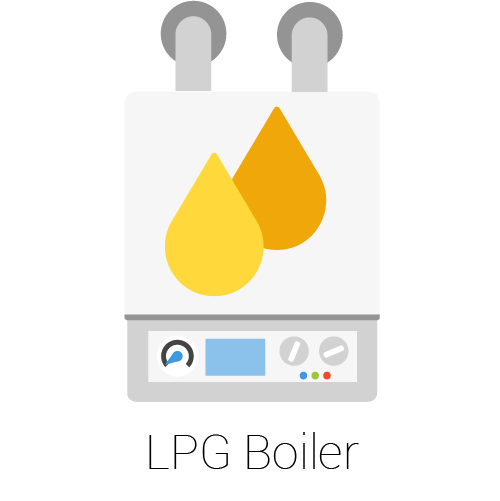
Liquid petroleum gas (LPG) and oil boilers operate similarly to natural gas boilers as they burn liquid fossil fuels to provide heating and hot water. The key difference between the two is that LPG and oil boilers need their respective fuels delivered to your house and stored in an external tank, but gas can be supplied directly through the mains. Because of this, oil and LPG boilers are commonly found in homes off of the gas grid. It’s good to note that it’s also possible for natural gas boilers to be converted to use LPG.
When compared to gas boilers, LPG boilers have similar energy efficiencies that are upward of 90%. However, LPG is a cleaner energy source than natural gas and oil as it emits 15-20% less carbon emissions. However, it still emits carbon dioxide and other greenhouse gases to the atmosphere through its burning and production process.
Electric Boilers
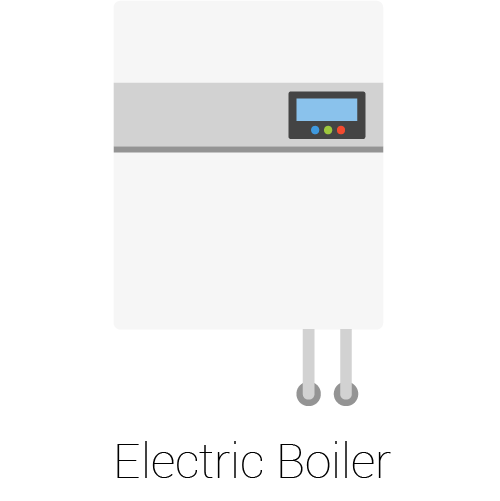
When you compare an electric boiler vs gas boiler, you'll find the former can be more efficient and environmentally-friendly as they achieve efficiency rates of 99%-100%. All modern boilers require electricity, but an electric boiler turns the electricity into heat rather than burning fossil fuels.
When considering switching to electric boilers, it’s good to know where your electricity is coming from. It is often thought that the best residential electric boilers don’t emit any greenhouse gases. However, most electricity suppliers in the UK source their electricity from burning natural gas. To avoid this and to reduce your carbon emissions you can find a renewable electricity provider. Otherwise, you can install a solar panel system to fully ensure your energy is clean and sustainable.
Hydrogen Boilers
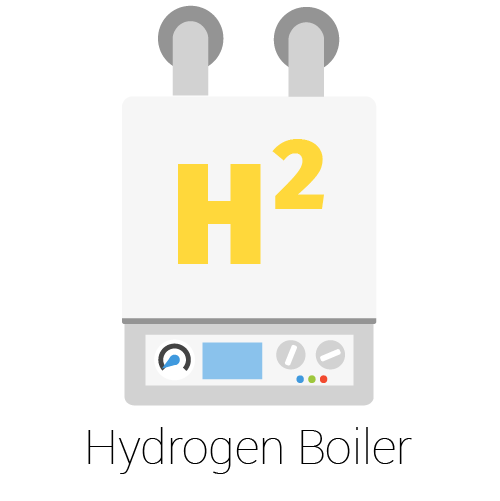
In the future, the UK Government plans to eventually phase out all gas boilers in favour of the more environmentally-friendly hydrogen boiler. The biggest environmental advantage is that hydrogen emits zero carbon when used and that there are ways of producing hydrogen that are very carbon efficient.
The best gas boilers now can run on a mixture of gas and hydrogen, but at this time it is not possible to purchase a boiler that runs 100% on hydrogen. However, some boiler manufacturers produce hydrogen-ready boilers that can run on a 20% hydrogen blend.
7 Low Carbon Alternatives to Gas Boilers
Traditional gas boiler alternatives can help lower your footprint, but low-carbon heating systems can have an even greater impact on both reducing your energy bill and your carbon emissions.
Biomass Boilers
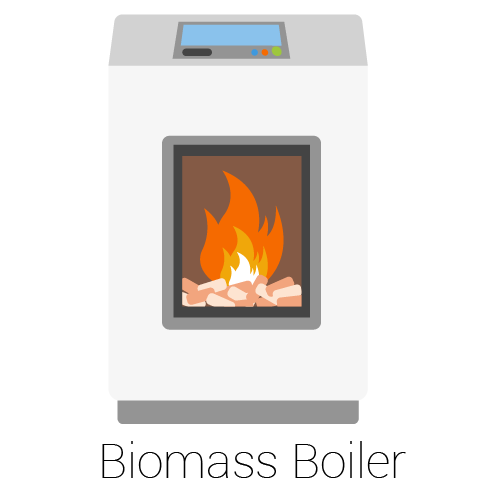
Biomass boilers burn biomass, usually in the form of wood pellets, to produce energy that can be used to heat homes. Biomass boilers can help play a role in achieving a reduction in domestic energy emissions.
As a renewable source of energy, they provide a good solution to reduce your home's carbon footprint and reduce your energy bills as gas costs continue to escalate and biomass boiler grants become available. Despite being considered carbon-neutral because the carbon emitted when burned is reabsorbed by tree growth, it is good to be aware that the burning process still produces carbon dioxide.
Air Source Heat Pumps
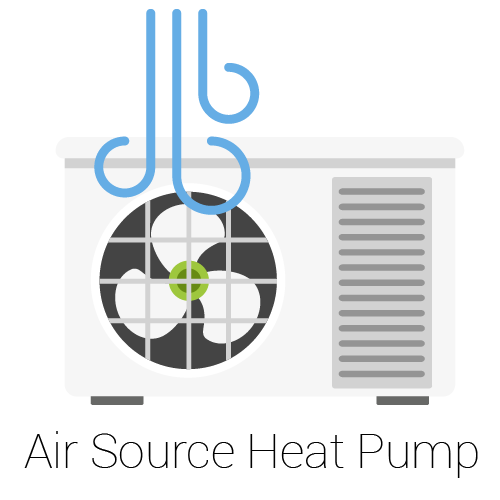
Air source heat pumps in the UK absorb heat from the air outside and transfer it to inside your house. There are two types of air source heat pumps: air-to-water and air to air source heat pumps. Whereas the air-to-air heat pump transfers heat to the air in a ventilation system, the water-to-water system transfers it to water in a central heating system. Contrary to the name, air source heat pumps can be used for both heating and cooling.
Air source heat pumps use a small amount of electricity, but they have a high energy efficiency rate of 300% - 400%. This means they produce 3 to 4 times more energy than they use, making them a better, low-carbon alternative to heating/cooling homes in the foreseeable future. So, if you’re looking to reduce your carbon footprint and your energy bill, then installing an air source heat pump in your home may be an ideal option.
Ground Source Heat Pump
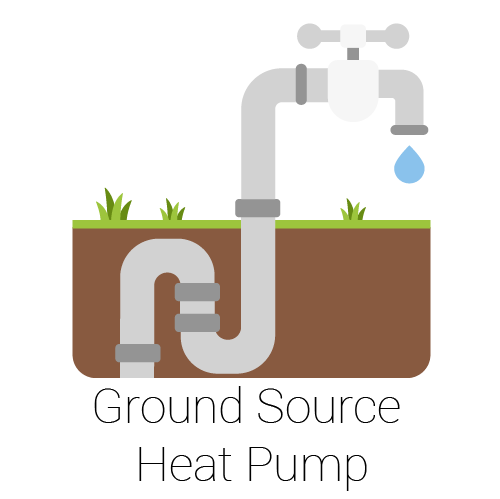
A ground source heat pump, also called a geothermal pump, works similarly to an air source heat pump but instead of drawing heat from the ambient air, it draws heat from metres under the ground. It’s able to draw heat from the ground to warm your home because the earth absorbs energy from the sun and keeps underground temperatures constant around 8-11°C in the UK.
Ground source heat pump costs tend to be higher than air source heat pumps because they can achieve greater energy efficiency of 300% - 500%. When compared to air source heat pumps, ground source heat pumps reduce your energy consumption by 44% on average, and 62% when compared to a traditional air conditioning system.

Solar Thermal Panels
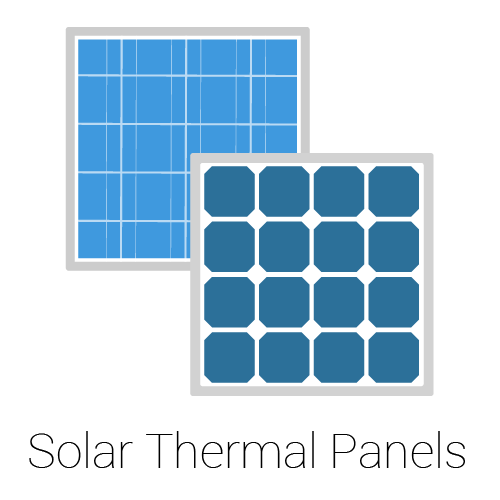
Traditionally, solar photovoltaic (PV) panels convert solar energy into electricity, but solar thermal panels can turn solar energy into heat instead of electricity. Because of this, solar thermal panels can store heat more reliably and uniformly than PV panels by storing heat in a water tank. Thus, solar thermal power is most commonly used for water heating as it’s the most effective function.
However, a solar thermal system won’t provide 100% of your hot water consumption because the amount of available solar energy varies throughout the year. On average, in the UK it will provide 90% of your hot water needs in the summer and 25% in the winter. And because sunlight is a free and renewable energy resource, it not only saves on your heating bill but also reduces your carbon emissions.
Infrared Heating Panels
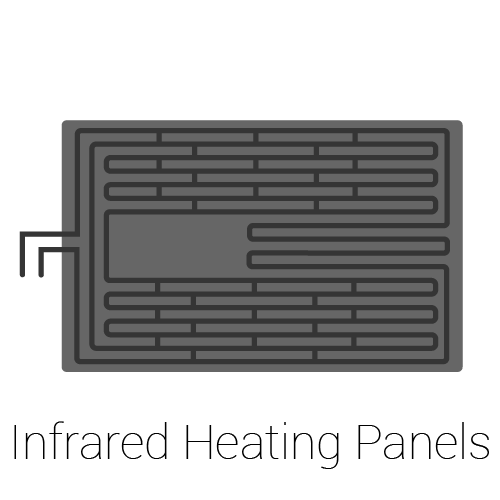
Infrared (IR) heating panels are a fairly new form of heating for both domestic and commercial use. It differs from conventional heating because rather than warming up the air around you, it uses electromagnetic waves of a certain frequency to travel unimpeded through the air until it hits an object. IR heating panels are specifically designed to heat objects in the room, including people.
IR heating panels operate at 100% energy efficiency, meaning that what you put in is what you get. In addition, if you generate your renewable energy with, for example, solar panels or heat pumps, then you can fully replace your gas heating system and be fully sustainable with infrared panels as your main heating system.
Solar Powered Electric Heating
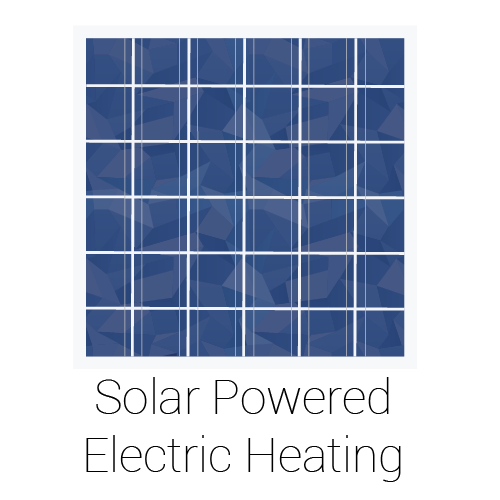
Homes in the UK are typically heated by burning gas to generate heat. However, with an electric heating system, you can use electricity to provide heat and potentially hot water for your property. One of the most sustainable ways to produce electricity for your home's electrical heating system is through solar panels as they will greatly reduce your home’s carbon footprint, especially if you’re switching from gas.
There are different types of electric heating systems, but ultimately which system you choose depends on the type and size of your home. For example, electric boilers are ideal for smaller homes while electric underfloor heating systems are best if you’re renovating a single room.
Hybrid Heating System
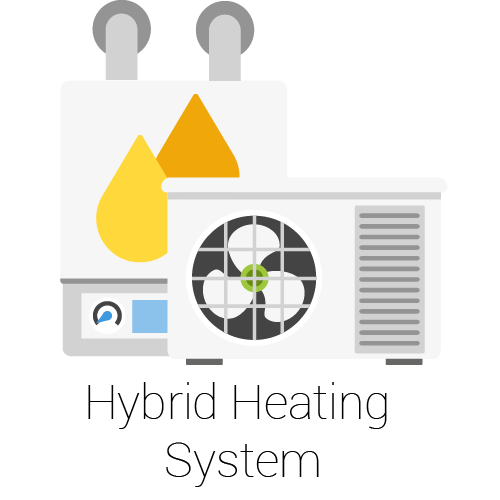
A hybrid green heating system usually combines a traditional gas boiler with a renewable heating system, such as solar panels or a heat pump. There are many hybrid system combinations you can use, but different combinations will be suitable for different home types. Using a hybrid system can be a very energy-efficient solution to power, heat, or cool your home.
For example, a heat pump-boiler hybrid system is popular because it will automatically switch between them depending on which is the most energy efficient at the time. In this case, heat pumps tend to be more efficient during warmer months and boilers during colder months. By using a hybrid system, you’ll have a reliable system all year round, consume less gas and reduce your carbon footprint. Depending on the system, you can also reduce your heating bill by up to 50% annually!
How Much Do Alternatives to Gas Boilers Cost?
Gas boiler alternatives tend to cost more than a gas boiler because they use more efficient and advanced technology. Whereas gas boilers burn fossil fuels, some gas boiler alternatives can harness renewable energy with almost 4 times as much efficiency.
By replacing your gas boiler with a low-carbon alternative heating source, you are making a long-term investment that will pay off over time. In some cases, if you pair your heating system with renewable energy, it can even earn you money in time. With that being said, the trade-off of a gas boiler alternative will pay off the most in reducing your environmental impact and greenhouse gas emissions.
| Heating System | Potential Cost |
|---|---|
| Gas Boiler | £500 – £3,000 |
| LPG Boiler | £500 – £2,500 |
| Oil Boiler | £1,000 – £3,000 |
| Electric Boiler | £650 – £2,500 |
| Hydrogen Boiler | £1,000 – £3,375 |
| Biomass Boiler | £4,000 – £21,000 |
| Air Source Heat Pump | £8,000 – £18,000 |
| Ground Source Heat Pump | £16,000 – £35,000 |
| Solar Thermal Panel System | £3,000 – £7,000 |
| Infrared Heating Panels | £150 – £500 (per panel) |
| Solar Powered Electric Heating | £3,000 – £8,000 |
| Heating Heating System | £5,000 – £10,000 |
The prices in the table above are just estimates based on what people have previously paid. Your price may be different depending on the type of system you’re replacing, the system model, and the manufacturer you choose.
Comparing The Cost of Gas to Alternative Fuels
In addition to the cost of the system itself and installation, you also need to consider what fuel your system uses, as this affects the running costs and its carbon emissions. For instance, gas may be one of the cheapest ways to heat a house, but it certainly isn’t the most eco-friendly way to do it.
Even using electricity can be more polluting than you might think because electricity is often generated by burning fossil fuels. You can ensure you’re receiving clean electricity by choosing an electricity supplier that focuses on renewable energy.
| Fuel | Average Cost (p/kWh) |
|---|---|
| Gas | £7.40 |
| Oil | £11.80 |
| LPG | £15.50 |
| Electricity (standard rate) | £28.30 |
| Wood Pellets | £9.90 |
There’s a lot to consider before getting a new eco-friendly heating system, but it’s important to compare installers’ prices to ensure you’re not being overcharged. Realistically, you could be overpaying by as much as £1,000! Comparing multiple quotes can help find you the most competitive price.
Fortunately, we can eliminate the risk of you overpaying by providing up to 4 free quotes from certified heating installers we’ve vetted. All you need to do to find the best deal for the low-carbon heating system of your choice is to answer some questions about your home heating needs. Then we’ll do the rest by providing you with free comparison quotes at no obligation.
Fill in the form in less than a minute.
Future Alternatives to Gas Boilers
What’s becoming clear is that the future of home heating is low-carbon, renewable heating systems, especially if the UK wants to achieve its carbon reduction targets. However, it’s not an easy feat as currently the majority (approximately 85%) of residential buildings are connected to the gas grid using a boiler system.
Over time, you can expect this number to continue to decrease as both new and existing homes transition away from the gas boiler in the face of new regulations and the gas boiler ban.
The Future Homes Standard is just one of the ways the UK Government is pushing for buildings to decarbonise. It will require all new domestic builds starting in 2025 to meet higher standards for insulation and require them to install low-carbon heating systems.
Alongside low-carbon and renewable heating systems in new homes, hydrogen fuel will also play an important role in decarbonising existing homes. Because the majority of UK homes are heated with gas boilers, it’s not practical nor financially viable for all homeowners to replace their current gas boilers.
That’s why hydrogen-ready boilers are preparing us for a future where gas fuel will be replaced by hydrogen, a much more eco-friendly solution. Hydrogen, unlike gas, doesn’t release greenhouse gases into the atmosphere when burned. Instead, it produces only water and vapour.
Switching to hydrogen, or even a hydrogen-gas blend, can help to reduce 6 million tonnes of the UK’s annual carbon emissions. That’s equivalent to removing 2.5 million cars from the road.
Looking further ahead, many of the current eco-friendly heating systems will continue to be developed and made more efficient, but in the meantime, there are also new gas boiler alternatives that we can look forward to.
For instance, space-based solar power has the potential to continuously generate electricity 24 hours a day for most of the year. But it will require much more investment and research before it’s ready for use.
Frequently Asked Questions about Gas Boiler Alternatives
Starting in 2025, gas boilers will be banned in newly constructed houses in the UK. Instead, new houses will be required to install low-carbon heating systems, such as heat pumps or solar panels. Starting in 2035, existing homes will no longer be able to purchase new gas boilers on the market, but can keep their existing boiler until it needs to be replaced.
Gas boilers will slowly be phased out in favour of low-carbon heating systems, such as heat pumps, solar panels, and hydrogen boilers. This means that by 2035, all homes in the UK won’t be able to purchase a new boiler because they are a high-carbon emitting system.
Yes, when the gas boiler ban was announced, the initial deadline to buy gas boilers was said to be 2023, however, the first phase of the gas boiler ban will actually start in 2025. In 2025, newly built homes will be required to install a low-carbon heating system. But homeowners with existing property can still purchase new boilers under 2035. This leaves the future of gas boilers to be short-lived.
Electric boilers are a far more sustainable heating solution than gas boilers, especially if your electric boiler is powered by renewable energy. Replacing your old gas boiler with a new electric boiler also offers a higher energy efficiency rate that helps save on energy consumption and reduces your carbon footprint.
There are many alternative fuels to gas that can be used to heat your home. Some of your options include oil, LPG, electricity, biomass, and hydrogen. Depending on your current heating system, it may also be possible to combine systems and fuels to create a more efficient system for your specific home needs.

As a writer with a deep understanding of low-carbon energy systems, Hannah aims to breakdown knowledge barriers and share insights to empower individuals in their pursuit of creating more environmentally conscious homes.
We strive to connect our customers with the right product and supplier. Would you like to be part of GreenMatch?


